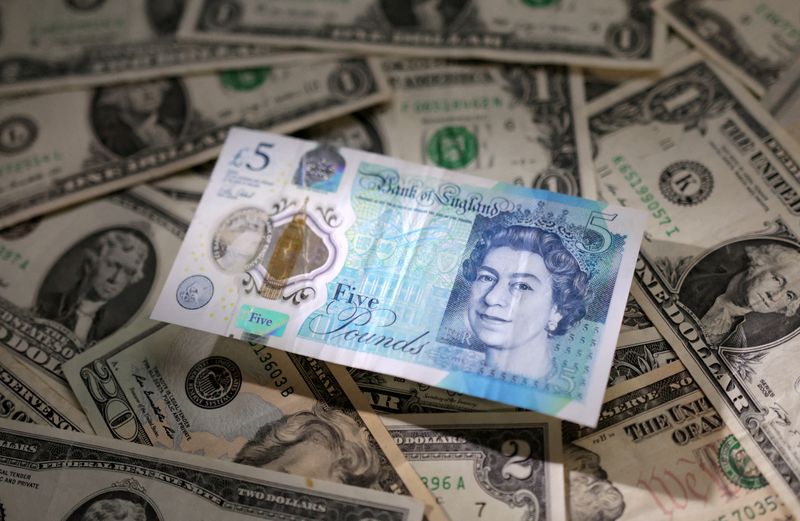By Joice Alves
LONDON (Reuters) - Sterling ticked higher on Thursday on expectations for more interest rate hikes by the Bank of England (BoE) after a forecast showed UK inflation is set to remain elevated this year.
Britain will have the highest inflation of any leading economy in 2023 at 6.9%, forecasts from the Organisation for Economic Co-operation and Development (OECD) released on Wednesday showed.
Sterling rose 0.35% to $1.2482 and was set for its second consecutive weekly rise. Against a strengthening euro, it was flat at 86.06 pence and stood not too far from a six-month high hit against the single currency last week.
Shaun Osborne, chief FX strategist at Scotiabank in Toronto, said data from OECD was somehow supporting the sterling.
"Sticky prices are impacted by high imported items costs. That's not a good look for the pound but it should also be no surprise that markets are still pricing close to another 100 basis points of BoE tightening over the coming months to combat price gains," he added.
Sterling also got a boost after Canada's central bank surprised markets on Wednesday by hiking its overnight rate to a 22-year high of 4.75%.
Interest-rate sensitive, British two-year government bond yields hit on Thursday their highest level since last September's "mini-budget" turmoil amid a continued selloff of government bonds in global markets on worries about further increases in borrowing costs.
Money markets are almost fully pricing in a 25 basis points (bps) interest rate hike by the Bank of England on June 22. They also expect similar moves when the central bank meets in August and September.
Chris Turner, head of markets at ING, said for sterling the next main event in the calendar will be next Tuesday's release of jobs and wages data.

"We see that as a negative event risk for sterling, where wage growth could continue to slow and take some of the steam out of the 100bp+ BoE tightening expectations still priced in by money markets," he said.
Britain's labour market cooled further in May as starting salaries for permanent staff rose at the weakest pace in over two years, according to a survey of recruiters on Thursday that the BoE watches closely.